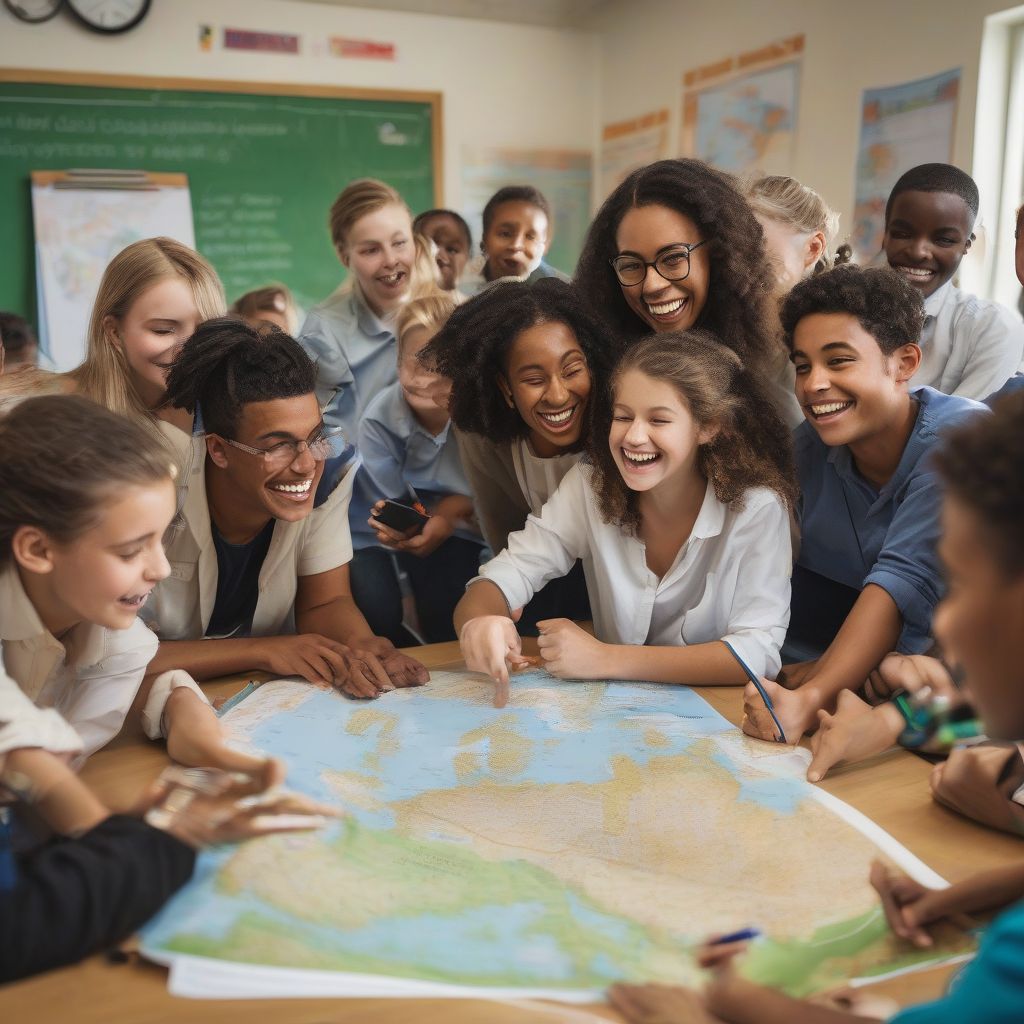Imagine this: You’re strolling through a bustling city center, the air buzzing with the sounds of laughter and conversation, not exhaust fumes. Public squares are alive with people choosing bikes or shared electric scooters over cars. Tourists eagerly seek out eco-friendly accommodations and local, sustainable eateries. This isn’t a utopian dream, but a potential future shaped by the power of education in promoting sustainable travel.
Understanding the Connection: Why Education Matters
Education is the cornerstone of change. It equips individuals with the knowledge, values, and skills necessary to make informed decisions and adopt responsible behaviors. When it comes to sustainable travel, education plays a pivotal role in:
1. Raising Awareness: Many people are simply unaware of the environmental, social, and economic impacts of their travel choices. Education can illuminate these impacts, fostering a sense of responsibility and a desire to minimize negative footprints.
2. Shifting Perspectives: Education can challenge preconceived notions about travel, encouraging individuals to view it not just as a leisure activity but as an opportunity to engage with different cultures, support local communities, and protect the planet.
3. Building Essential Skills: From understanding carbon offsets to deciphering eco-certifications, sustainable travel often requires specific knowledge and skills. Educational initiatives can provide the tools and resources needed to navigate these complexities effectively.
 Sustainable Travel Education
Sustainable Travel Education
How Education Fuels Sustainable Travel Choices
The impact of education on sustainable travel manifests in various ways:
1. Informed Decision-Making: Educated travelers are more likely to prioritize sustainable options, whether it’s choosing eco-friendly accommodations, opting for public transportation, or supporting local businesses committed to responsible practices.
2. Advocacy and Influence: As individuals become more knowledgeable about sustainable travel, they become powerful advocates within their own circles. They influence friends, family, and colleagues, creating a ripple effect that amplifies the message.
3. Long-Term Behavioral Change: Education has the potential to cultivate lasting behavioral shifts. When individuals internalize the importance of sustainable travel, it becomes an integral part of their travel philosophy, guiding their choices for years to come.
Key Areas Where Education Makes a Difference
Let’s explore some specific areas where education is driving positive change in the travel industry:
1. The Rise of Sustainable Tourism Education
Formal educational programs dedicated to sustainable tourism are gaining traction worldwide. Universities and colleges are offering specialized degrees and courses that equip students with the knowledge and skills to become leaders in responsible tourism development and management.
2. Empowering Travelers Through Information
The internet has become a powerful tool for promoting sustainable travel. Travel bloggers, websites, and organizations disseminate valuable information about eco-friendly destinations, responsible tour operators, and sustainable travel tips, empowering travelers to make informed choices.
3. Engaging Communities in Tourism Development
Education plays a vital role in fostering sustainable tourism practices within local communities. By educating residents about the benefits and challenges of tourism, they can actively participate in shaping tourism development in a way that preserves their cultural heritage and natural environment.
The Future of Sustainable Travel: Education as a Guiding Light
While significant progress has been made, the journey towards a truly sustainable travel industry is ongoing. Education remains a crucial driver of this transformation.
1. Integrating Sustainability into Mainstream Education
Incorporating sustainability principles into school curricula from an early age is essential to creating a generation that is environmentally conscious and responsible in all aspects of their lives, including travel.
2. Leveraging Technology for Immersive Learning
Virtual reality, augmented reality, and gamified learning platforms offer exciting possibilities for engaging travelers and raising awareness about sustainable travel practices in an immersive and impactful way.
3. Fostering Collaboration for Greater Impact
Collaboration between governments, tourism boards, educational institutions, and travel businesses is crucial to developing comprehensive and effective educational initiatives that reach a wider audience.
Conclusion: Embracing Education for a Brighter Future of Travel
The role of education in promoting sustainable travel cannot be overstated. It’s the key to unlocking a future where travel is a force for good, enriching lives while preserving the planet for generations to come. By investing in education, we invest in a more sustainable and responsible travel industry for all. What steps can you take today to make your next trip more sustainable? Share your thoughts and let’s continue the conversation!
[amazon bestseller=”sustainable travel”]
